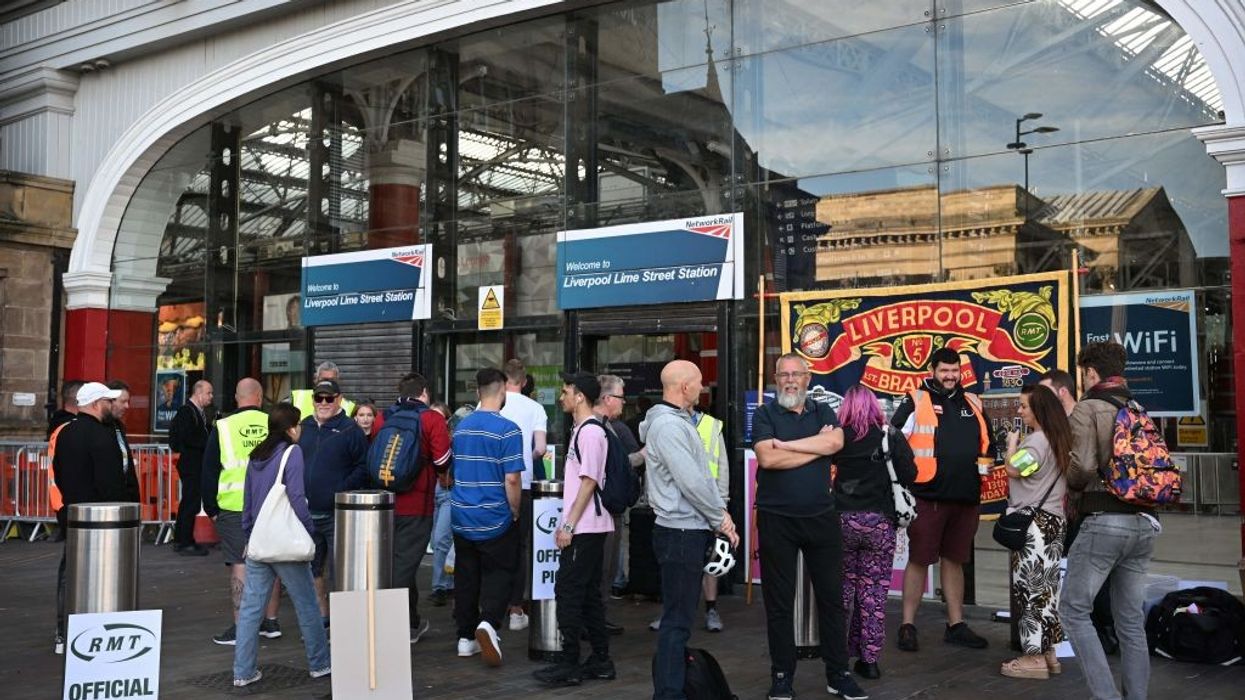RUSH-HOUR commuters in the UK faced chaos on Tuesday (21) as railway workers began the network's biggest strike action in more than three decades, with a cost-of-living crisis threatening wider industrial action.
Last-ditch talks to avert the strike broke down on Monday, meaning more than 50,000 members of rail union RMT will walk out for three days this week.
Train and London Underground stations shut Tuesday morning, forcing people to either work from home or find alternative routes into the office.
Hordes of people were waiting at bus stops on the outskirts of London shortly after 6 am, but many gave up as services towards the capital carried on without stopping, already full.
Transport Secretary Grant Shapps said he "deplored" the strikes, which he said evoked the "bad old days of the 1970s".
"The people that are hurting are people who physically need to turn up for work, maybe on lower pay, perhaps the cleaners in hospitals," he told Sky News.
"I absolutely deplore what they're doing today and there is no excuse for taking people out on strike."
But RMT general-secretary Mick Lynch described as "unacceptable" offers of below-inflation pay rises by both overground train operators and London Underground that runs the Tube in the capital.
The walkouts -- also on Thursday and Saturday -- risk causing significant disruption to major events including the Glastonbury music festival.
Schools are warning that thousands of teenagers taking national exams will also be affected.
The strikes are the biggest dispute on Britain's railway network since 1989, according to the RMT.
Rail operators, however, warn of disruption throughout the week, with only around 20 per cent of services running during the walkouts while lines not affected by strike action still having to reduce services.
RMT members on the London Underground are additionally staging a 24-hour Tube train stoppage Tuesday.
The union argues the strikes are necessary as wages have failed to keep pace with UK inflation, which has hit a 40-year high and is on course to keep rising.
Teachers, lawyers, NHS
Countries around the world are being hit by decades-high inflation as the Ukraine war and the easing of Covid restrictions fuel energy and food price hikes.
Unions warn also that railway jobs are at risk, with passenger traffic yet to fully recover after the lifting of coronavirus pandemic lockdowns.
The strikes are compounding wider travel chaos after airlines were forced to cut flights owing to staff shortages, causing long delays and frustration for passengers.
Thousands of workers were sacked in the aviation industry during the pandemic but the sector is now struggling to recruit workers as travel demand rebounds following the lifting of lockdowns.
Other areas of the public sector are set to hold strikes.
The Criminal Bar Association, representing senior lawyers in England and Wales, have voted to strike from next week in a row over legal aid funding.
Justice minister James Cartlidge called the walkout "disappointing" given that the court system is already battling significant backlogs in cases caused by the pandemic.
Four weeks of action begin on Monday and Tuesday, increasing by one day each week until a five-day strike from July 18.
Teaching staff and workers in the state-run National Health Service are reportedly also mulling strike action.
And several other transport unions are balloting members over possible stoppages that could occur in the coming weeks.
(AFP)





